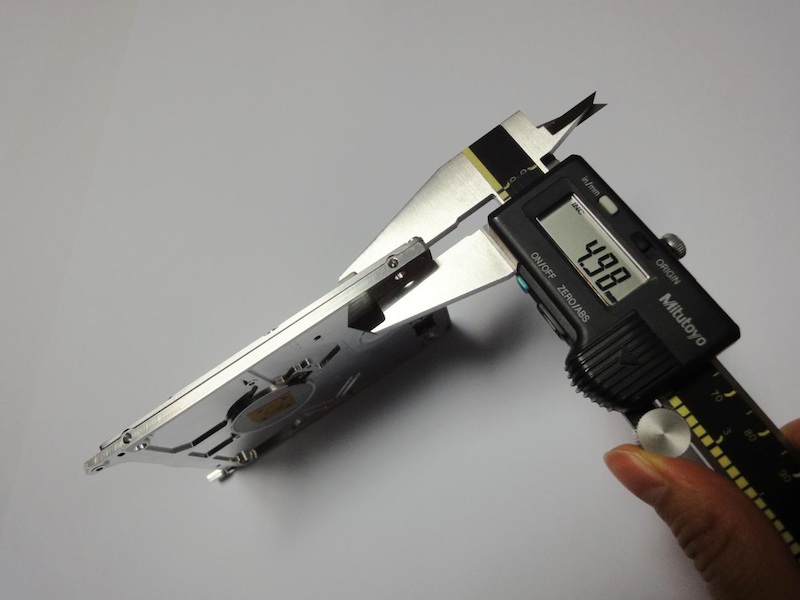 The A*STAR Data Storage Institute (DSI) announced that it is developing a hybrid hard disk drive, which is thin enough to fit into a tablet.
The A*STAR Data Storage Institute (DSI) announced that it is developing a hybrid hard disk drive, which is thin enough to fit into a tablet.
For more information visit: www.dsi.a-star.edu.sg
Unedited press release follows:
Thin Drives – the next generation of portable memory
17 Nov 2011
Singapore- Tablets are fast becoming the media device of choice nowadays for work and play, particularly with the advent of iPads and the Samsung Galaxy Tab into the mobile device market. With a volume of 19.5 million of media tablet sold in 2010, and the sales volume is projected to reach over 200 million units by 2014[1]. As media tablets seem to be an emerging trend and continues its expansion into mass consumer market, there is a lot of potential to improve the performance of the media tablet, especially in the area of memory and storage.
Although the current memory and storage of choice for tablets is Flash memory, the A*STAR, Data Storage Institute (DSI) believes that moving forward, thin hybrid drives[2] would provide a good alternative to Flash memory due to the scaling and performance limitations of Flash memory. Additionally, hybrid drives could potentially lessen power consumption, reduce costs and increase storage capacity. Currently, the thinnest hard disk drive in the market for a 2.5 inch form factor is about 7 mm. However, in order to break into the media tablet market, the ideal thickness of a hard disk drive should be 5 mm or less.
Researchers at DSI aim to produce a hard disk drive thin enough to fit into a tablet, taking the thickness of the current iPad2 (which is at 0.34 inch or 8.8 mm) as the benchmark target. The DSI also proposed a hybrid architecture in order to mitigate the issues of portability, reliability of data, and power consumption. Compared to Flash or solid state drives (SSD), hybrid drives can provide a larger storage capacity, and performances at a significantly lower cost; whilst compared to hard disk drives, hybrid drives can reduce power consumption by about 30%.
One of the main challenges faced in scaling down the thickness of a hard disk drive is the ability to scale the thickness of the current spindle motor while maintaining the motor performance such as the non-repeatable run-out (NRRO). DSI has designed an axial field motor (the current motor is based on a radial field design) that is 4 mm thick, and can spin at 5400/7200 revolutions per minute (rpm). The axial field design eliminates cogging torque and unbalanced magnetic pull that in turn helps to reduce friction loss of the bearing, vibration and acoustic noise. This novel and slim spindle motor will be demonstrated in DSI’s thin drive with a 5 mm thickness.
“DSI is very excited about the direction that we are taking. We strongly believe there is an opening in the market for thin drives. We are capitalising on our years of R&D experience in hard disk drive and data centre technologies and are working passionately to make the concept of thin hard disk drive into reality,” said Dr. Pantelis Alexopoulos, Executive Director of DSI.
About Data Storage Institute
The Data Storage Institute (DSI) is a member of the Agency for Science, Technology and Research (A*STAR). Established in 1992 as the Magnetics Technology Centre (MTC), it was renamed Data Storage Institute in 1996. The research institute’s vision is to be a vital node in a global community of knowledge generation and innovation, nurturing research talents and capabilities for world-class R&D in next generation storage technologies. For more information, please visit http://www.dsi.a-star.edu.sg
About the Agency for Science, Technology and Research (A*STAR)
The Agency for Science, Technology and Research (A*STAR) is the lead agency for fostering world-class scientific research and talent for a vibrant knowledge-based and innovation-driven Singapore. A*STAR oversees 14 biomedical sciences and physical sciences and engineering research institutes, and six consortia & centres, located in Biopolis and Fusionopolis as well as their immediate vicinity.
A*STAR supports Singapore’s key economic clusters by providing intellectual, human and industrial capital to its partners in industry. It also supports extramural research in the universities, and with other local and international partners. For more information about A*STAR, please visit www.a-star.edu.sg.
[1] Gartner
[2] A hybrid drive is a mechanical drive with some NAND flash memory on it that is automatically used by the drive as a buffer to store data for quicker access.

